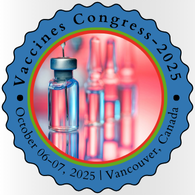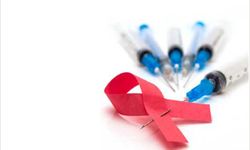HIV vaccines
The Human immunodeficiency virus (HIV) vaccine can either protect individuals from being infected with HIV or treat HIV-infected individuals. The virus can be transmitted through infected blood, sexual intercourse (semen or vaginal fluids). AIDS also called Acquired Immunodeficiency Syndrome is caused by HIV where it interferes with the body’s ability to fight infections. Common symptoms of AIDS include weight loss, fever, fatigue, and recurrent infections. An HIV vaccine can either induce an immune response against HIV or consist of preformed antibodies against HIV. Two active HIV vaccine regimens are studied in the RV 144 and Imbokodo trials, which showed the results that it helped to prevent HIV in some individuals. However, the protection was observed in only a few individuals and was not long-lasting results. For these reasons, no HIV vaccines have been licensed in the market yet but research is still going on.
Related associations and societies: National Institutes of Health (NIH) , Immune Deficiency Foundation (IDF),National Institute of Allergy and Infectious Diseases (NIAID), National Medical Association (NMA), Federation of Clinical Immunology Societies (FOCIS), Asia Pacific Association of Allergy, Asthma and Clinical Immunology (APAAACI), Clinical Immunology Society, Hepatitis B Foundation (HBF), Pediatric Infectious Diseases Society(PIDS), Indian Vaccine Manufacturers Association (IVMA).
Related Conference of HIV vaccines
9th International Conference on Vaccines, Immunology and Clinical Trials
7th International conference on Vaccines, Vaccination and Immunization
HIV vaccines Conference Speakers
Recommended Sessions
- Advancements of Vaccines
- Adverse effects of Vaccination
- Anti-bodies and Viral Diseases
- Antibiotics
- Bio Markers and Case Reports
- Clinical Trials
- Corona Virus
- Emerging Infectious Diseases
- Geriatric immunization
- HIV vaccines
- Immunization for pregnant & Lactating women
- Immunology
- Insulin and Insulin Therapy
- Pediatric Vaccines
- Plant-Based Vaccines
- Travel Immunization
- Vaccine Guidelines
- Vaccine Manufacturing Technologies
- Vaccine research and Development
- Vaccine safety and Efficacy
- Vaccines
- Vaccines and its types
- Vaccines Associated with Cancer
- Viral Mutations and Variants
- Virology & Microbiology
Related Journals
Are you interested in
- Adaptive Immunity and Immune Memory Formation - WORLD VACCINES 2026 (France)
- Adjuvants and Immune Modulation Strategies - WORLD VACCINES 2026 (France)
- Advancements in Vaccine Research and Development - Vaccines R&D 2026 (France)
- Advances in Pediatric Vaccines - Vaccines R&D 2026 (France)
- Animal & Plant Derived Vaccines - Vaccines-Immunization-2026 (France)
- Animal Models & Clinical Trials - Vaccines-Immunization-2026 (France)
- Antibodies: Engineering & Therapeutics - Vaccines-Immunization-2026 (France)
- Bacterial Vaccines and Toxoid Development - WORLD VACCINES 2026 (France)
- Bioinformatics and AI in Vaccine Design - Vaccine Immunology 2026 (France)
- Cancer, Malaria & TB Vaccines - Vaccines-Immunization-2026 (France)
- Cellular Immunology & Latest Innovations - Vaccines-Immunization-2026 (France)
- Challenges in Vaccine Accessibility and Equity - Vaccine Immunology 2026 (France)
- Clinical Trials Design and Methodologies - Vaccines R&D 2026 (France)
- Clinical Vaccinology and Immunotherapy - Vaccine Immunology 2026 (France)
- Combination & Conjugate Vaccines - Vaccines-Immunization-2026 (France)
- Computational Immunology and Vaccine Modeling - WORLD VACCINES 2026 (France)
- Current Research & Future Challenges - Vaccines-Immunization-2026 (France)
- DNA & Synthetic Vaccines - Vaccines-Immunization-2026 (France)
- Emerging and Re-Emerging Infectious Diseases - WORLD VACCINES 2026 (France)
- Emerging Infectious Diseases - Vaccine Immunology 2026 (France)
- Emerging Infectious Diseases and Vaccine Development - Vaccines R&D 2026 (France)
- Ethical Considerations in Vaccine Development and Distribution - Vaccines R&D 2026 (France)
- Fish & Poultry Vaccines - Vaccines-Immunization-2026 (France)
- Future Directions in Vaccine Research - Vaccine Immunology 2026 (France)
- Future Directions in Vaccines and Immunology - WORLD VACCINES 2026 (France)
- Geriatric Immunization - Vaccines-Immunization-2026 (France)
- Global Immunization Strategies and Policy - Vaccines R&D 2026 (France)
- Global Vaccination Strategies - Vaccine Immunology 2026 (France)
- HIV Vaccines - Vaccines-Immunization-2026 (France)
- Human Microbiome and Vaccines - Vaccine Immunology 2026 (France)
- Immunogenetics and Host Immune Variability - WORLD VACCINES 2026 (France)
- Immunogenetics and Personalized Vaccines - Vaccine Immunology 2026 (France)
- Immunogenetics and Personalized Vaccines - Vaccine Immunology 2026 (France)
- Immunology and Immune System Innovations - Vaccine Immunology 2026 (France)
- Immunology of Infectious Diseases - Vaccine Immunology 2026 (France)
- Immunology of Infectious Diseases - Vaccines R&D 2026 (France)
- Immunopathology and Vaccine Safety - WORLD VACCINES 2026 (France)
- Immunotherapy and Personalized Medicine - Vaccines R&D 2026 (France)
- Immunotherapy and Vaccines for Non-Infectious Diseases - Vaccine Immunology 2026 (France)
- Immunotherapy in Cancer Treatment - Vaccine Immunology 2026 (France)
- Industry and Technology Innovations - Vaccine Immunology 2026 (France)
- Innate Immune Responses in Vaccination - WORLD VACCINES 2026 (France)
- Innovations in Vaccine Cold Chain and Storage - Vaccines R&D 2026 (France)
- Maternal, Neonatal, and Geriatric Immunization - Vaccine Immunology 2026 (France)
- Microbiome-Targeted Vaccines - Vaccine Immunology 2026 (France)
- mRNA Vaccines and Nucleic Acid Platforms - WORLD VACCINES 2026 (France)
- Mucosal Immunity and Alternative Vaccine Routes - WORLD VACCINES 2026 (France)
- Nanotechnology and Advanced Delivery Systems - Vaccine Immunology 2026 (France)
- Nanotechnology in Vaccine Delivery - Vaccine Immunology 2026 (France)
- Next-Generation Vaccine Platforms - Vaccine Immunology 2026 (France)
- Novel Vaccine Platforms: mRNA, DNA, and Viral Vectors - Vaccine Immunology 2026 (France)
- One Health Approach to Vaccine Development - Vaccine Immunology 2026 (France)
- Paediatric Vaccination - Vaccines-Immunization-2026 (France)
- Pandemic Preparedness and Response - Vaccine Immunology 2026 (France)
- Pediatric and Geriatric Immunization Strategies - WORLD VACCINES 2026 (France)
- Public Health and Global Immunization - Vaccine Immunology 2026 (France)
- Regulatory Approaches in Vaccine Development - Vaccines R&D 2026 (France)
- Regulatory Science and Vaccine Approval Pathways - WORLD VACCINES 2026 (France)
- Role of Adjuvants in Vaccine Efficacy - Vaccines R&D 2026 (France)
- Role of AI and Big Data in Vaccine Research - Vaccines R&D 2026 (France)
- The Economics of Vaccination - Vaccine Immunology 2026 (France)
- Translational Immunology and Vaccine Development - Vaccines R&D 2026 (France)
- Translational Vaccinology from Research to Practice - WORLD VACCINES 2026 (France)
- Travel & Edible Vaccines - Vaccines-Immunization-2026 (France)
- Vaccine Biomarkers and Immune Correlates - WORLD VACCINES 2026 (France)
- Vaccine Delivery Systems and Targeting Approaches - WORLD VACCINES 2026 (France)
- Vaccine Delivery Systems: Innovations and Challenges - Vaccines R&D 2026 (France)
- Vaccine Design and Antigen Engineering - WORLD VACCINES 2026 (France)
- Vaccine Development for Cancer Immunotherapy - Vaccines R&D 2026 (France)
- Vaccine Development for Vector-Borne Diseases - Vaccines R&D 2026 (France)
- Vaccine Equity and Access in Low-Resource Settings - Vaccines R&D 2026 (France)
- Vaccine Hesitancy and Public Perception - Vaccines R&D 2026 (France)
- Vaccine Hesitancy and Public Trust - Vaccine Immunology 2026 (France)
- Vaccine Manufacturing and Distribution - Vaccines R&D 2026 (France)
- Vaccine Manufacturing and Scale-Up Technologies - WORLD VACCINES 2026 (France)
- Vaccine Production & Development - Vaccines-Immunization-2026 (France)
- Vaccine Production and Global Supply Chains - Vaccine Immunology 2026 (France)
- Vaccine Research and Development - Vaccine Immunology 2026 (France)
- Vaccine Safety and Adverse Event Monitoring - Vaccine Immunology 2026 (France)
- Vaccine Safety and Pharmacovigilance - Vaccines R&D 2026 (France)
- Vaccine Safety, Pharmacovigilance, and Adverse Event Monitoring - Vaccine Immunology 2026 (France)
- Vaccine-Induced Cellular Immunity - WORLD VACCINES 2026 (France)
- Vaccine-Induced Immunity and Duration of Protection - Vaccine Immunology 2026 (France)
- Vaccines - Vaccines-Immunization-2026 (France)
- Vaccines & Autism - Vaccines-Immunization-2026 (France)
- Vaccines against Drugs - Vaccines-Immunization-2026 (France)
- Vaccines against Infectious Diseases - Vaccines-Immunization-2026 (France)
- Vaccines for Immune Mediated Diseases - Vaccines-Immunization-2026 (France)
- Vaccines for Pregnant Women & Neonates - Vaccines-Immunization-2026 (France)
- Vaccines for Unconventional Diseases - Vaccines-Immunization-2026 (France)
- Vectors, Adjuvants & Delivery Systems - Vaccines-Immunization-2026 (France)
- Viral Vaccine Platforms and Vector Technologies - WORLD VACCINES 2026 (France)


